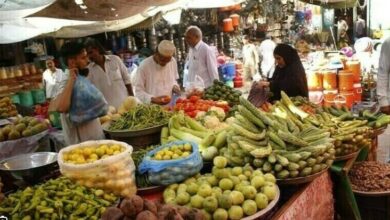Pakistan risks losing $1.1 billion in exports to France if it throws out the French ambassador to show its anger over the publication of blasphemous caricatures. Not only this, but trade perks with the 27-country European Union could also be at stake.
“France will definitely respond if we expel the French diplomat,” said Karachi Chamber of Commerce and Industry President Shariq Vohra. “It would most likely vote against Pakistan when it sits on the EU board, which will decide Pakistan’s GSP-plus status.” GSP stands for Generalised Scheme of Preference.
Right now, Pakistan exports mainly textiles to the EU under the GSP-plus status, which gives us benefits such as reduced duties. This makes our exports cheaper and more competitive.
Since Pakistan was granted GSP-plus in 2014, its exports increased 65% from 4.5 billion euros in 2013 to 7.5 billion euros in 2019. Last year the EU extended Pakistan’s GSP-plus status till 2022.
To give you a sense of how coveted this status is, consider how this perk benefited Bangladesh. Under GSP-plus status, Bangladeshi exports went from $15 billion to $39 billion within a decade.
If Pakistan loses its GSP-plus status, it could say goodbye to approximately $3.5 billion of annual exports, which is nearly two months of its total exports, according to Pakistan Hosiery Manufacturing Association research. It would essentially hit all EU products.
“We may not only lose GSP-plus status with France but the whole 27-nation European Union where we export around a quarter of our total exports or $6 billion of textile goods,” said Javed Bilwani, the Pakistan Hosiery Manufacturing Association former chairman and chief coordinator.
France is one of a few countries with which Pakistan has a trade surplus, that is the dollars we earn from exports to France are double the dollars we spend on imports from France. Pakistan exported nearly $1.1 billion and imported $366 million from France in 2020. This translates into a $700 million trade surplus.
Pakistan imports more than it exports but thanks to remittances, the money Pakistani workers mostly labor in the Middle East, send back home help keep our current account afloat. The Current Account is Pakistan’s account with the rest of the world. Simply put, exports and remittances are how we earn and imports are our expense.
“We are a country that needs more debt to retire previous debt. We regularly knock at the door of the IMF and Asian Development Bank to save ourselves from defaulting,” said Bilwani. “We can’t afford to lose our export destinations.”
He gave the example of countries that do not sacrifice their revenue at the altar of religion. “China and India remain at loggerheads, so does China and America,” he said. “But trade isn’t hampered between them so why should we let that happen?”
Pakistan’s trade with France has been increasing in the last five years from exports of $863 million in 2016 to $1.066 billion in 2020. The imports declined from $615 million in 2016 to $366 million in 2020. Nearly 80% of Pakistan’s exports to France are textile products.










